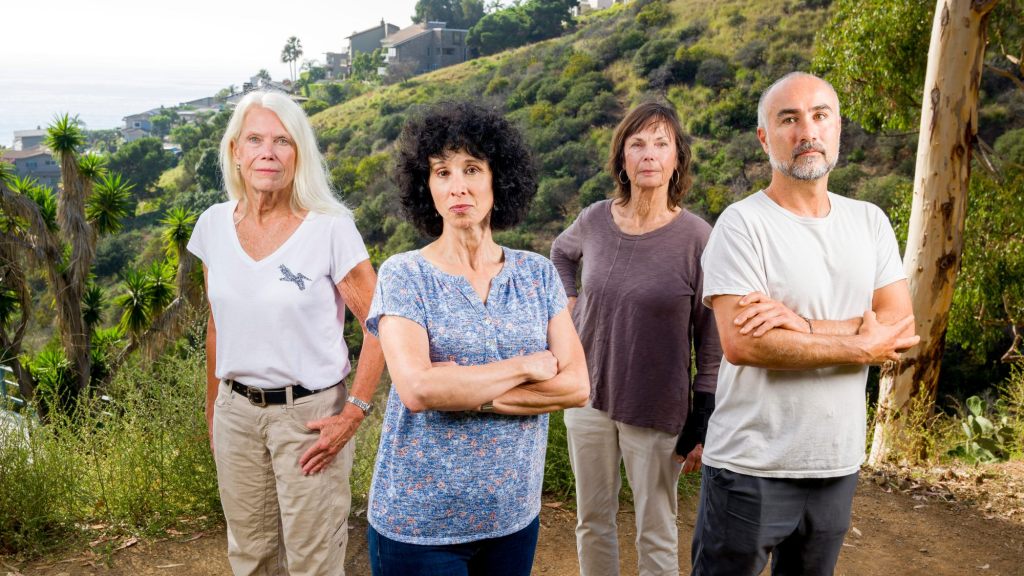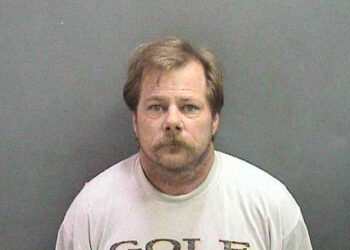It was an unusual view above her South Laguna Beach home as Jinger Wallace sipped her morning coffee.
It was late February and six or seven men dressed in white suits, some carrying packs with a liquid, were spraying on the hillside just about 100 feet above. Thinking something “wasn’t right,” Wallace, wearing flip-flops, climbed up and asked what they were doing.
They were spraying, she learned, to get rid of invasive plants as part of the city’s efforts to safeguard against fire risk.
That put Wallace on a mission to convince city officials to eradicate the use of the weedkiller Roundup, which she worries is toxic to residents and the environment.
Roundup contains the herbicide glyphosate; it was developed decades ago by Monsanto, which was bought in 2018 by Bayer. Glyphosate is classified as a probable human carcinogen by the World Health Organization, though the U.S. Environmental Protection Agency says its findings are the herbicide is not likely carcinogenic to humans when used as directed. Debate and legal challenges have gone on for years.
Bayer has said it would replace glyphosate in Roundup for residential use beginning in 2023.
“Bayer stands fully behind our glyphosate-based products, which have been used safely and successfully around the world for 50 years,” said Kyel Richard, a company spokesperson, in a statement.
“Leading health regulators around the world have repeatedly concluded that our glyphosate-based products can be used safely as directed,” Richard said. “Glyphosate-based herbicides are among the most thoroughly studied products of their kind, which is a major reason why farmers and others around the world continue to rely on these products to control problematic weeds.”
Roundup has been used for years by the city, said Mayor Bob Whalen, more recently in South Laguna starting in January. The effort is part of a wide-ranging fire management plan rolled out by the city starting in 2019 with blessings from the…
Read the full article here







